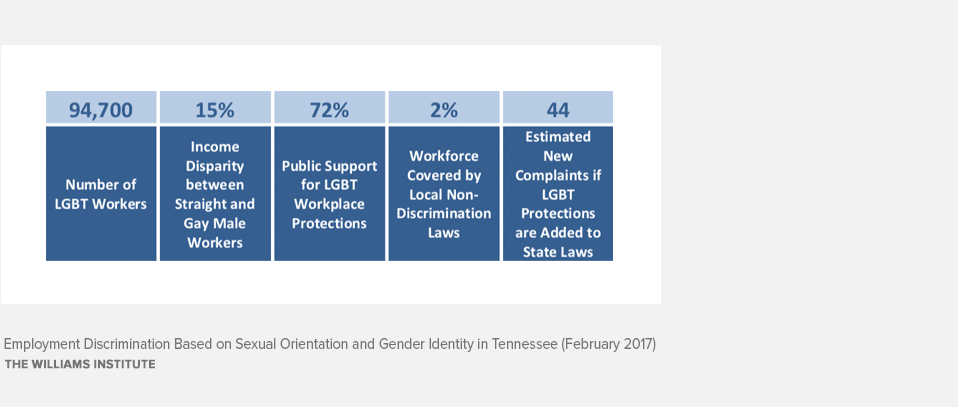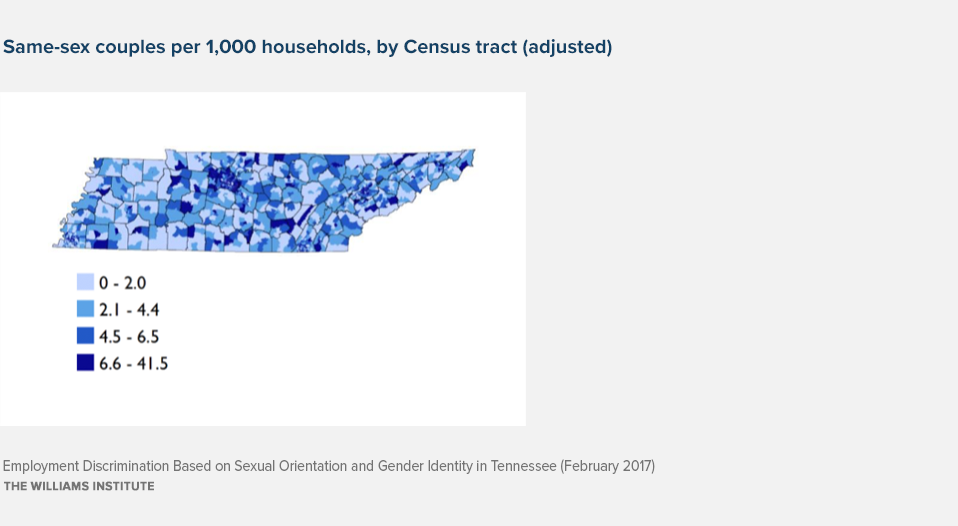Executive Summary
More than 4% of the American workforce identifies as lesbian, gay, bisexual, or transgender (LGBT). Approximately 94,700 of these workers live in Tennessee. Tennessee does not have a statewide law that prohibits discrimination based on sexual orientation or gender identity in employment.
This report summarizes recent evidence of sexual orientation and gender identity employment discrimination, explains the limited current protections from sexual orientation and gender identity discrimination in Tennessee, and estimates the administrative impact of passing a law prohibiting employment discrimination based on these characteristics in the state.


